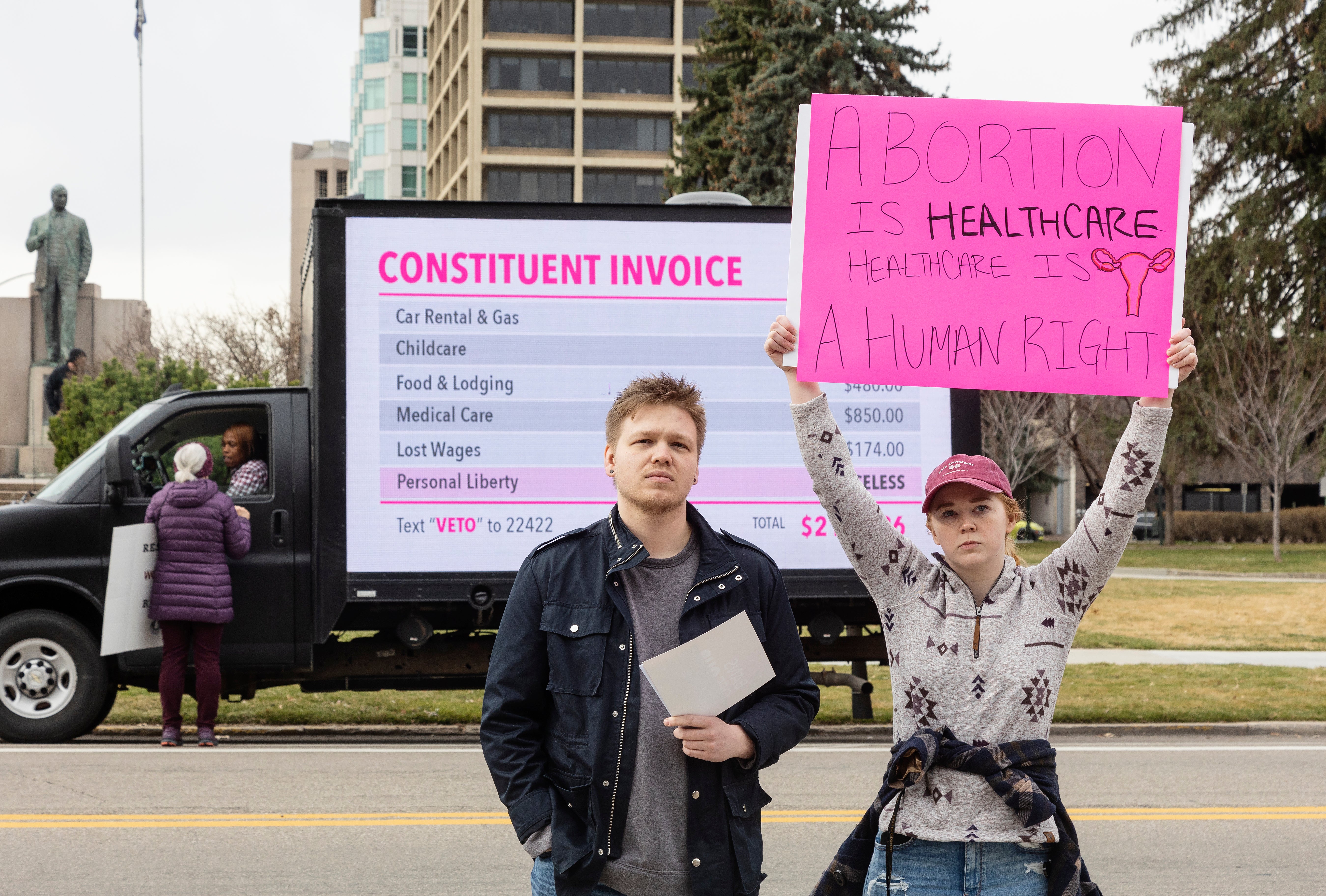Health care provider sues over Idaho's strict abortion ban
A regional Planned Parenthood organization is suing Idaho over a new law that bans nearly all abortions by allowing potential family members of the embryo to sue abortion providers

Your support helps us to tell the story
From reproductive rights to climate change to Big Tech, The Independent is on the ground when the story is developing. Whether it's investigating the financials of Elon Musk's pro-Trump PAC or producing our latest documentary, 'The A Word', which shines a light on the American women fighting for reproductive rights, we know how important it is to parse out the facts from the messaging.
At such a critical moment in US history, we need reporters on the ground. Your donation allows us to keep sending journalists to speak to both sides of the story.
The Independent is trusted by Americans across the entire political spectrum. And unlike many other quality news outlets, we choose not to lock Americans out of our reporting and analysis with paywalls. We believe quality journalism should be available to everyone, paid for by those who can afford it.
Your support makes all the difference.A regional Planned Parenthood organization is suing Idaho over a new law that bans nearly all abortions by allowing potential family members of the embryo to sue abortion providers.
The law, which is based on a similar one that Texas enacted last year, was signed by Idaho Gov. Brad Little last week. At the time, the governor said he supported the anti-abortion policy but was worried the enforcement mechanism of the law would soon be “proven both unconstitutional and unwise.”
Planned Parenthood Great Northwest, Hawaii, Alaska, Indiana, Kentucky, which operates 40 health centers across six states, filed the lawsuit with the Idaho Supreme Court on Wednesday.
“By passing this cruel abortion ban, Idaho lawmakers are deliberately making Idahoans’ health care decisions for them," Dr. Caitlin Gustafson, a family medicine specialist who is joining Planned Parenthood in the lawsuit, said in a statement. "They will be directly preventing physicians in Idaho from providing critical medical care that our patients need and that we have trained our entire careers to provide. This law eliminates personal freedom and places Idahoans’ health and future in the hands of politicians.”
Under the law, even extended family members like aunts and uncles of the patient seeking the abortion or the person who impregnated them could sue an abortion abortion provider for more than $20,000 in damages. While rapists are barred from suing under the law, a rapist's relatives could sue the rape victim's abortion provider.
It applies to abortions carried out any time after six weeks of pregnancy — well before many people even know they are pregnant.
If the high court doesn't intervene, the law will take effect on April 22.
“Even setting aside the fundamental right to privacy in making intimate familial decisions guaranteed by Idaho's Constitution, the bill's laws are flagrant and many,” Planned Parenthood's attorneys wrote in the lawsuit, calling the legislation an “unprecedented power grab by the Idaho Legislature.”
The organization is asking the Idaho Supreme Court to stop the law from taking effect, to declare it unconstitutional and to order the state to pay the legal costs associated with the case.
Abortion providers in Texas have also challenged that state's ban, but they have faced several unfavorable court rulings including one earlier this month from the Texas Supreme Court that likely portends the end of the case.
Idaho isn't the only Republican-controlled state to use the Texas ban as model legislation. Lawmakers in Oklahoma, where many Texas women are now seeking abortions, have pursued several anti-abortion measures this year including a Texas-style ban.
The U.S. Supreme Court is expected to rule later this year in a different case out of Mississippi, which bans abortions after six weeks. That decision could decide the future of abortion rights in GOP-led states nationwide.